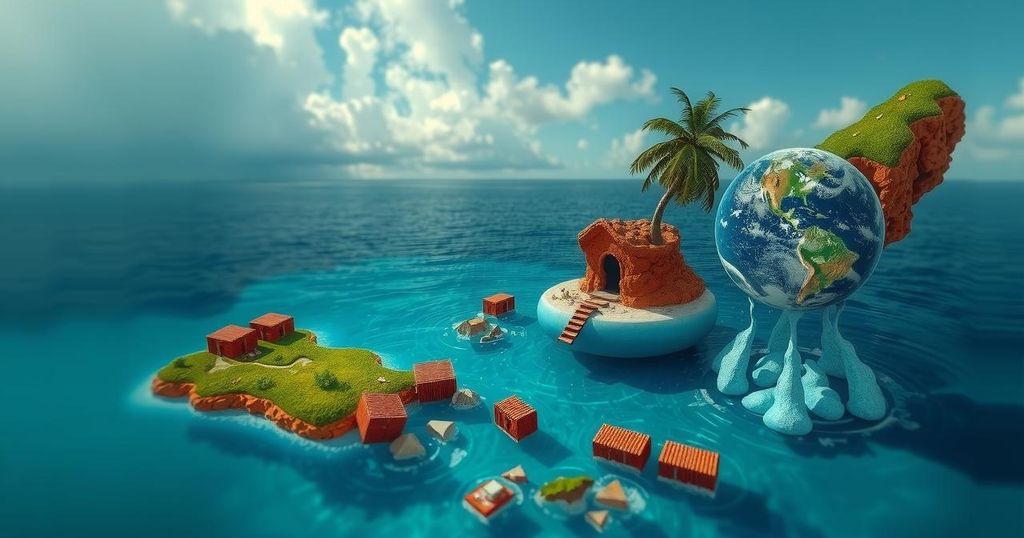Small island states have appealed to the International Court of Justice to address high-emitting countries’ obligations beyond existing climate treaties, highlighting the urgency for accountability and reparations as they face existential threats from climate change. The hearings featured testimonies from various countries, stressing the need for significant emission reductions and underscoring that international climate agreements should not override human rights and broader international law.
In a crucial assembly at the International Court of Justice (ICJ) in The Hague, representatives from small island nations requested that the court expand its examination of high-emitting UN member states’ climate obligations, looking beyond existing climate treaties. Ralph Regenvanu, Vanuatu’s climate envoy, emphasized the legal breaches of major emitters and called for accountability as their nations face existential threats from climate change. The ICJ’s ten-day hearings saw discussions from multiple countries, including the Bahamas and Barbados, who presented stark examples of the tangible impacts of climate change on their economies and communities. Gloria Houniuhi, an advocate for Pacific Island students, highlighted the generational contract being undermined by climate change, insisting that the future of communities depends on significant action from industrialized nations. In stark contrast, Saudi Arabia defended existing treaties as adequately covering climate obligations and warned against granting legal status to future generations, arguing it could threaten international agreements. The proceedings spotlighted the urgency for deep cuts in greenhouse gas emissions and raised vital questions about accountability and reparations for nations historically responsible for climate degradation.
The ongoing climate crisis has prompted nations, especially small island states, to demand justice and accountability from high-emission countries. These states argue that existing treaties, such as the Paris Agreement, do not adequately address their situation. Their cultures and livelihoods are at risk, and they seek a legal opinion from the ICJ that recognizes broader obligations of states under international law, beyond the confines of established climate agreements. This case represents a call to action for the global community to confront the reality of climate change and its disproportionate impact on vulnerable regions.
The request by small island states to the International Court of Justice marks a critical moment in the fight against climate change, as it seeks to establish accountability for industrialized nations. The discussions highlighted the dire consequences that climate change has already inflicted on these nations and called for immediate interventions and reparations. The engagement of varied countries in this dialogue underlines the necessity of integrating human rights within the climate regime and stresses that existing treaties alone cannot guarantee future generations’ rights and safety. The outcomes of these hearings may set significant precedents for climate justice globally, reaffirming the principle that those historically responsible for climate damage must take substantial corrective measures.
Original Source: www.ipsnews.net






